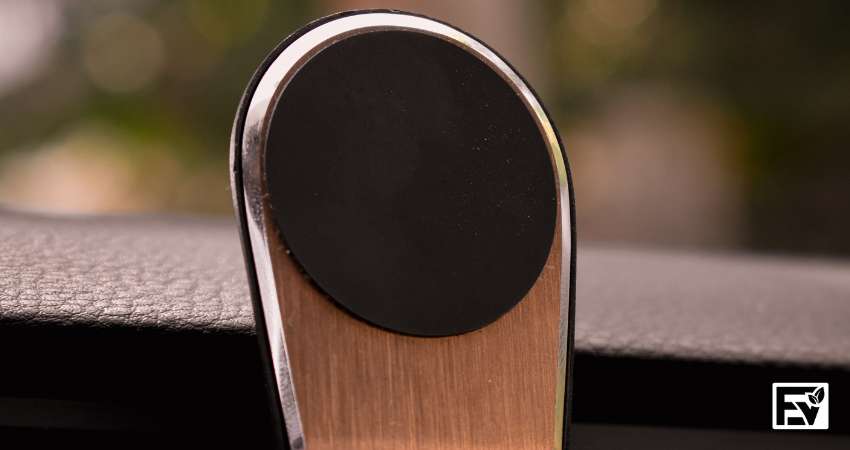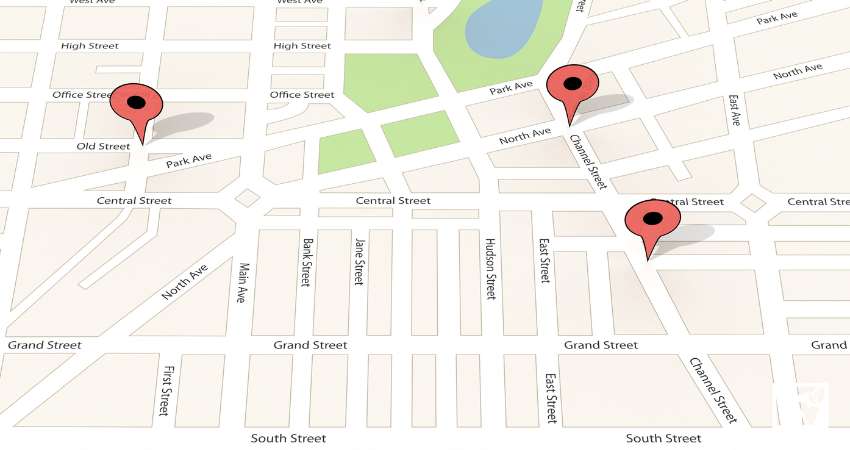Do you use a magnetic phone holder in your car to keep your phone in place while you drive? It is a convenient and popular solution, but have you ever wondered if it could affect the accuracy of the GPS? With GPS being a critical tool for navigation and mapping, it is essential to understand the potential impact of magnetic phone holders on GPS signals.
No, magnetic phone holders do not interfere with the GPS since the latter relies on satellite signals and is not composed of a compass-like assembly that can be easily influenced by magnets in the vicinity. Likewise, the magnets in the holders are too small and weak to block GPS signals.
Magnetic Phone Holders and GPS: An Explanation
Basically, the misconception of magnets interfering with the GPS arises from their comparison with the traditional compass. However, they are two entirely different things—one operates on electromagnetic signals while the other utilizes magnets.

In the past, compasses relied on magnetic forces to align with the earth’s magnetic poles, and a strong magnet could have interfered with navigation. However, modern GPS devices are entirely electronic and utilize satellite-based technology rather than a geomagnetic system. As a result, magnets have no impact on the functionality of GPS.
The GPS in your smartphone uses satellites in outer space to track your location and time, and it confirms your location by exchanging signals with a network of other satellites. To triangulate your position, the system calculates the differences in direction, speed, and time. Given the advanced technology involved, it is unlikely that a small magnet in a phone mount would have any impact on this process.
Overall, the use of magnetic phone holders does not pose any risk to the GPS functionality of modern electronic devices. Therefore, users can confidently use magnetic phone mounts without any concerns about interference with GPS signals.
What Impacts GPS Signals?
- Buildings: GPS signals have a hard time making their way through concrete and metals. Since buildings have a significant portion of both of these materials in their basic structure, you can expect your smartphone’s GPS to stall while walking through a typical city downtown.
- Dense Materials: GPS signals do not penetrate through thick items, usually made of wood or metals. Some thin materials such as a simple aluminum foil can also block these signals. A phone wrapped in aluminum foil can even form a faraday cage around itself, acting as a GPS jammer for nearby devices.
- Strong Magnets: Unlike the magnets in phone holders, those of massive size and strength (capable of stripping your blood of iron!) can mess with the GPS signals. Luckily, such magnets are only found in specialized places, and one cannot expect to encounter such disturbance in a city.
- Electromagnetic Waves: Radio waves and microwaves can interfere with GPS signals. However, modern smartphones are ‘shielded’ enough to have any sort of such impact. But if you have an older device, it might get affected.
How to Ensure GPS Signals Strength?

- Keep your phone in an open space and away from obstructions, such as tall buildings or trees. If you have to walk near tall buildings, try to stay as much away as possible.
- Turn on “High accuracy” mode in your phone’s location settings. The mode uses maximum information about your location to generate perfect results even if the signals are not perfect in your area.
- Turn off battery-saving modes, such as “Battery saver” or “Power saving” mode, which can reduce GPS strength. In most smartphones, conservation modes typically restrict the overall performance including that of the GPS and any location-based utility.
- Check for software updates, as newer versions may contain GPS signal improvements. Particularly, if your smartphone’s make and model has any GPS-related issue, the manufacturer will likely be throwing updates to help counter it.
- Use a GPS signal booster app, such as GPS Signal Booster. Since GPS signals may also rely to some extent on the cellular network, you can also try using a network signals booster to help with location accuracy.
- Make sure a case or any other object is not covering your phone’s GPS antenna. If the covering has any sort of aluminum on it, get rid of it.
- Try resetting your phone’s GPS settings or restarting the device if it fails to give desired accuracy or signal strength.
- If you are still having trouble, consider purchasing an external GPS antenna or a GPS signal amplifier. This can provide you with promising results.
Best Practices of Using Magnetic Phone Holders
In general, magnetic phone holders are safe to use with smartphones, so you don’t need to take any special precautions when attaching your device to them. Modern smartphones don’t contain any magnetic components that can be affected by nearby magnetic fields, and the magnets in holders are typically too small and weak to have an impact on electronic devices.
However, it’s important to be careful when choosing a magnetic holder for your car. You should look for a holder that is strong enough to securely hold your smartphone in place while your vehicle is in motion, particularly when driving on bumpy roads. Choosing a weak holder could result in your device falling and breaking, or even injuring passengers or damaging the interior of your car. So, it’s important to choose a high-quality magnetic holder that can keep your phone secure while you’re on the go.
Alternatives to Magnetic Phone Holders
- Air Vent Phone Holders: These holders attach to the air vent in your car and use a clamp to hold your phone in place.
- Dashboard Phone Holders: These holders use a suction cup or adhesive to attach to your car dashboard and hold your phone securely.
- Windshield Phone Holders: These holders attach to your car’s windshield using a suction cup and hold your phone using adjustable arms or a clamp.
- Armband Phone Holders: These holders are designed to be worn on your arm and hold your phone securely while you are running, hiking, or working out.
Read: Tips on Selecting a Magnetic Phone Holder for Your Electric Car
Concluding Remarks: Does Magnetic Phone Holder Interfere With GPS?
There is a common misconception that magnetic phone holders can interfere with GPS functionality. However, GPS operates using satellite signals and doesn’t rely on a magnetic compass-like structure that could be easily affected by nearby magnets. Moreover, the magnets used in phone holders are generally too small and weak to obstruct GPS signals.
To ensure strong GPS signals, it’s essential to keep your phone in an open space and activate high accuracy mode, as well as regularly check for software updates. While magnetic phone holders are generally safe to use, it’s important to select a holder that is strong enough to hold your phone securely. Other options for phone holders include air vents, dashboards, and windshield holders.


